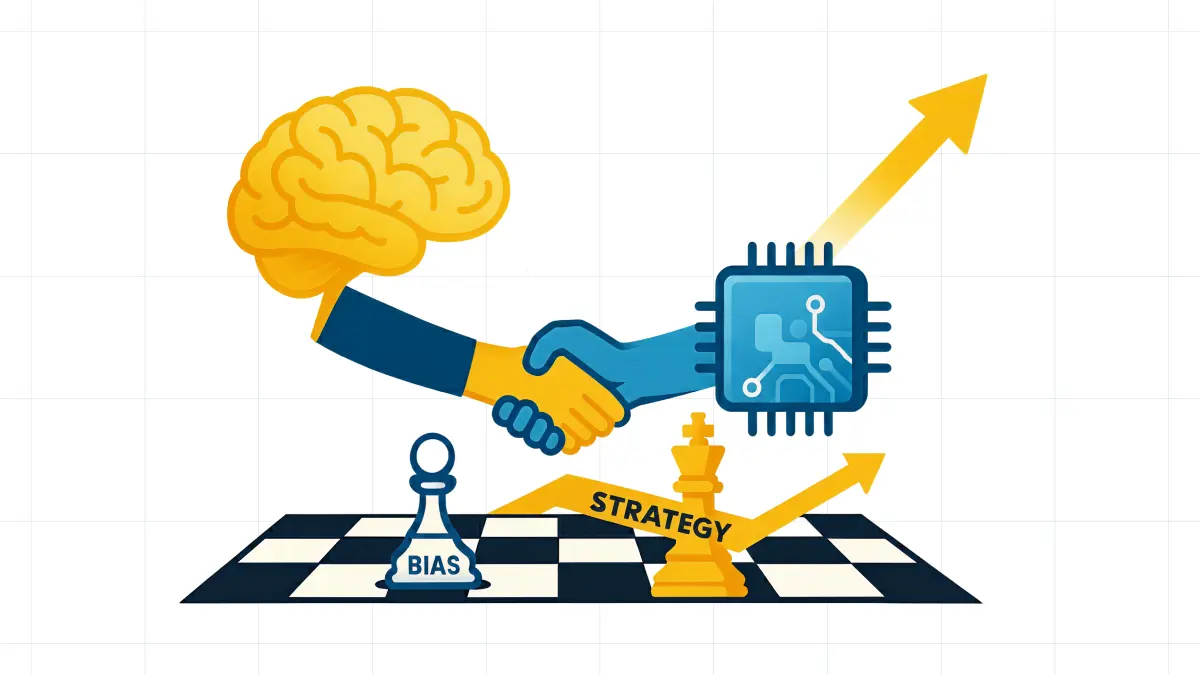The Real Skill of the AI Era. Critical Thinking.
Forget “learn to code.” In the AI era, the rarest skill isn’t technical—it’s thinking.

It’s hard to open your feed without being told that “AI is changing everything.” And it is.
But the reflexive advice that follows - “learn to code!” or “become a data scientist!” may miss the mark.
Now, I’m not saying those skills aren’t valuable (they are), but if we stop there, we’re not just missing the forest for the trees - we’re ignoring the whole damn ecosystem.
Let me offer a different take.
The most essential skill for the future is thinking.
Thanks, Anthony, but that's not just true for the future, but right now!
AI in HR Today
with Anthony Onesto
Subscribe for exclusive insights from Anthony Onesto, Chief People Officer at Suzy, and learn how AI is reshaping HR, enhancing employee engagement, and driving business success.
TOGETHER WITH
The Illusion of AI Output
Let’s zoom out. Today’s AI tools can draft an email, write a job description, or even generate an entire marketing strategy.
The raw output? Pretty good.
But here’s the thing: that output is becoming a commodity. Everyone will have access to tools that produce decent content, analysis, or code.
So what’s scarce?
Judgment.
A machine might spit out a new DEI policy in just 10 seconds.
But would you deploy that policy without a human reviewing it for legal risk, tone, or cultural alignment?
I hope not.
The human element is not a “nice to have.” It’s the value.
AI can tell you that a specific employee from accounting is a “flight risk” based on patterns in her behavior, performance or engagement surveys.
But what it can’t do is ask why.
Maybe they need flexibility.
Maybe they are frustrated by a manager who micromanages every hour of their day.
The data can alert us, but it’s our job to think critically, engage empathetically, and make informed decisions.
The human stuff matters more than ever.
AI Bias Isn’t Just a Bug - It’s a Feature of Bad Thinking
We must also be honest about the risks.
AI systems are only as good as the data they’re trained on. And if that data reflects historical bias—guess what?
You’re scaling discrimination at lightning speed.
The EEOC has already made it clear: employers are still accountable for discriminatory outcomes even if the decisions were made by a machine.
The recent Workday lawsuit demonstrates this risk.
That’s not a warning. That’s a wake-up call.
You can’t just deploy AI tools and assume they’re neutral.
You need people who know how to question the machine.
Those who can audit the output.
Teams that can see the blind spots.
That’s critical thinking in action. That’s strategy. That’s leadership.
Critical Thinking Is the Killer App
Let’s be clear: this isn’t some philosophical rant.
This is a strategic imperative.
In our rush to upskill employees in AI tools, we’ve overlooked a more powerful lever: training them to think critically.
Yes, we should teach folks how to use the tech. But we must also build capabilities to:
- Challenge the AI output when it doesn’t make sense
- Ask “what’s missing from this data?”
- Make final decisions with context and consequences in mind.
We’ve entered the “copilot era” of work, where AI handles some of the basic tasks and humans take the lead.
But what good is a copilot if the pilot can’t navigate?
You don’t need to be the person writing the code behind the AI.
However, you must be the person who knows how to interpret its results, ask the right questions, and drive outcomes that are both ethical and effective, aligned with the mission.
Train for Mindset, Not Just Skillset
So how do we prepare our teams?
- Build programs that don’t just teach software, but also teach skepticism.
- Encourage managers to be curious, not compliant, when reviewing AI output.
- Train employees to recognize bias, question anomalies, and convey human nuance.
It’s not about replacing people with AI.
It’s about augmenting people.
Making them better. Making them think bigger.
AI won’t replace critical thinkers. But it will replace people who just follow directions.
From Tactical to Strategic
In HR and People functions, this shift is especially urgent.
We’ve already seen automation creep into sourcing, onboarding, and even performance reviews.
But here’s the truth: tools can’t build culture.
They can’t lead change.
They can’t solve people's problems with empathy and nuance.
Only humans can do that.
And if we want to thrive - not just survive - in the future of work, we need to elevate our teams from tactical executors to strategic thinkers.
That starts with valuing thinking as a core skill, not just a soft one.
So, here’s the question: Are you teaching your people how to use AI, or how to think in a world where AI is everywhere?
Because in the future, the best employees won’t be the ones who just use the tools.
They’ll be the ones who know when not to.
AI in HR Today
with Anthony Onesto
Subscribe for exclusive insights from Anthony Onesto, Chief People Officer at Suzy, and learn how AI is reshaping HR, enhancing employee engagement, and driving business success.
